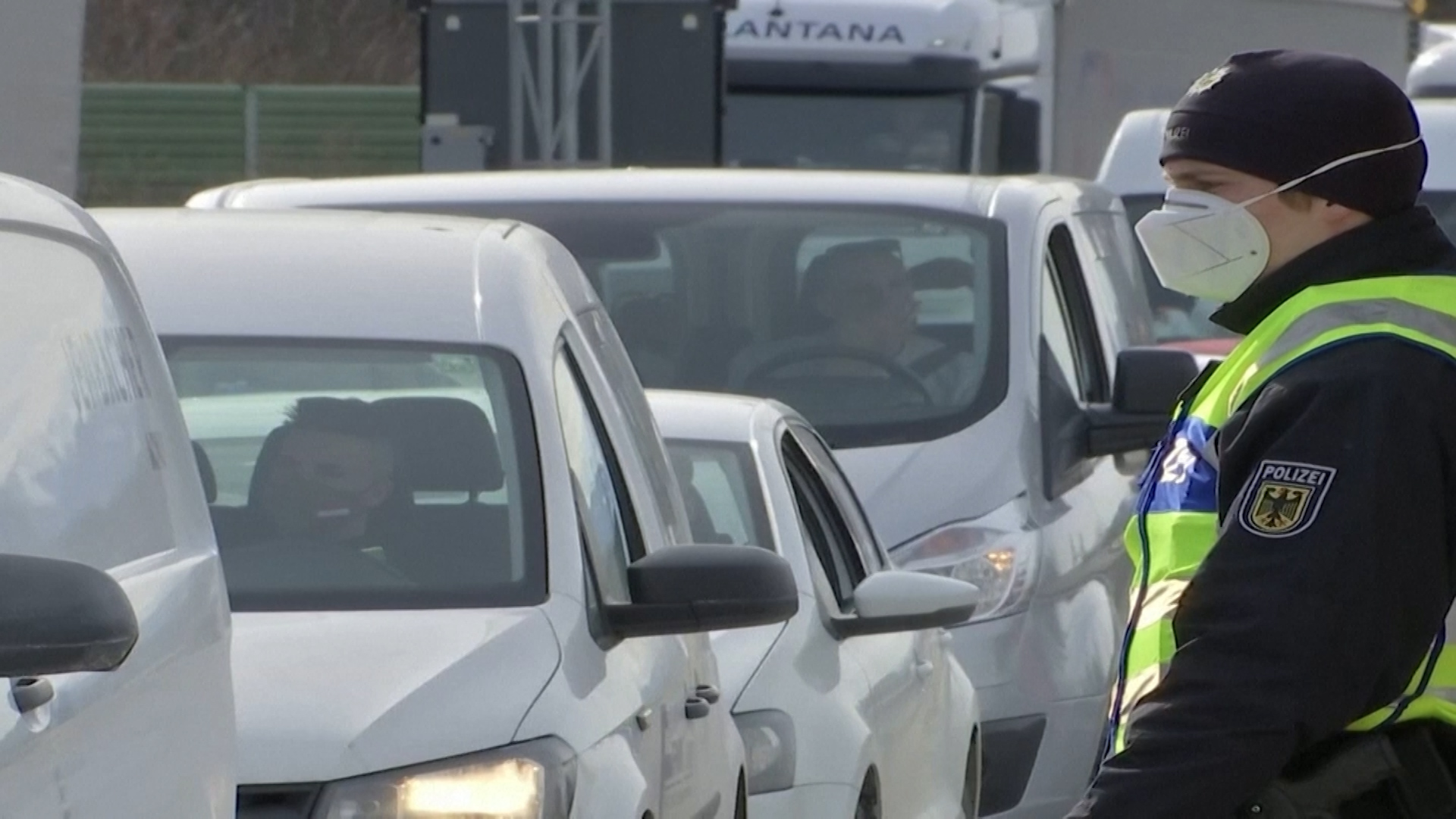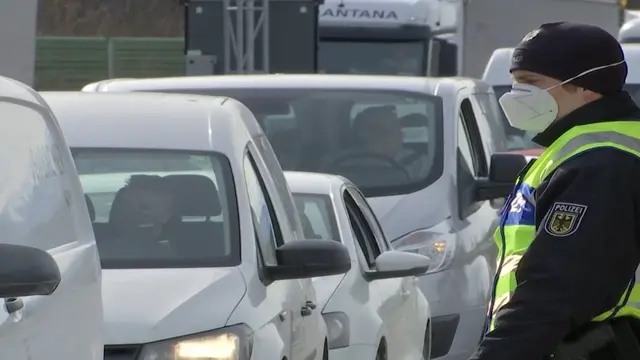02:28

Despite calls from some politicians in Berlin to close one of the EU's most symbolic crossings, Germany's border with France will remain open – but with a new negative testing requirement.
All people traveling between the French region of Moselle and Germany will have to present proof of a negative COVID-19 antigen test taken in the previous 48 hours.
"We have negotiated with the Germans so that crossing the border remains allowed, so that these tests are faster and are easier antigenic tests," France's Minister for Europe Clement Beaune told
BFM TV.
READ MORE
Record-breaking ice swim
Brazil-discovered variant found in UK
Europe struggles with long COVID-19
The Moselle region in northeastern France includes the city of Metz and borders the German states of Saarland and Rhineland-Palatinate.
The rules are less severe than those that had been suggested on Sunday morning, which would have reintroduced firm border checks and required passengers to present a PCR test. Similar rules have been put in place at Germany's border crossing with Czechia and Austria.
French officials have tried to limit travel restrictions within European borders. France's President Emmanuel Macron clashed with Germany's Chancellor Angela Merkel last year after Berlin closed all borders during the first wave.
Germany has said that while border restrictions are the country's last resort, they are needed to maintain progress made during a three-month shutdown. More contagious coronavirus variants, include some first discovered in the UK, South Africa and Brazil, threaten to undo that progress.
Germany's Robert Koch Institute for infectious diseases on Sunday changed its classification of the Moselle region to an "area of concern," citing the spread of a variant first detected in South Africa.
The new restrictions do not replace existing rules for travel between Germany and France at borders in southern regions.
Commuters will not have to present any documents at checkpoints, but German authorities say random checks will be carried out frequently.
 简体中文
简体中文

